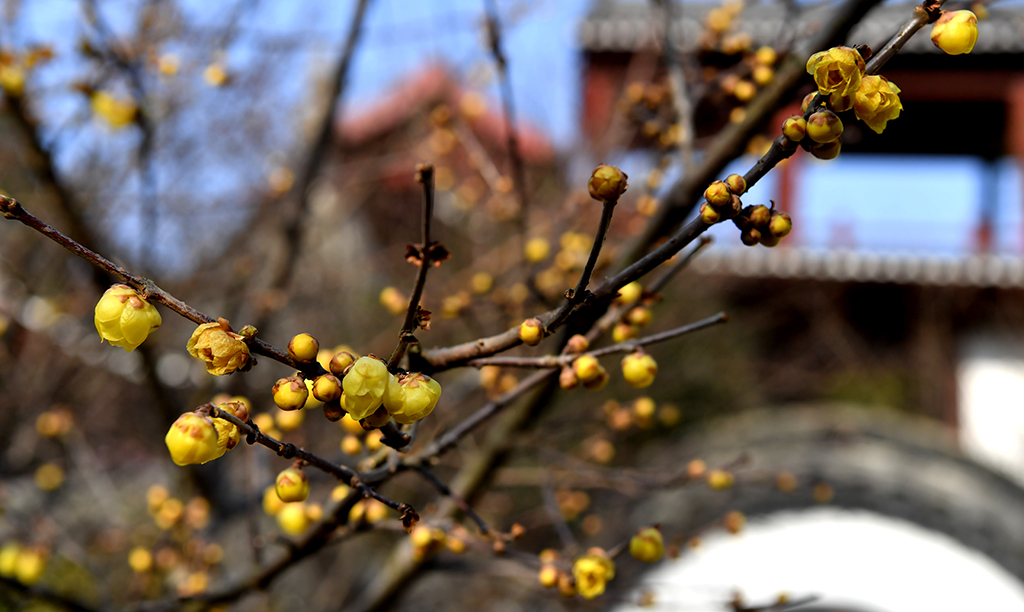Characteristic towns lift pillar industry
Two internet of things-focused areas to lead in display, concepts and technological applications.
A loft in a spring breeze of rapid urbanization and economic growth, Wuxi in Jiangsu province, one of the birthplaces of China's modern industry and commerce, has taken the lead in the internet of things.
By the end of 2016, Wuxi had attracted 2,000 IoT enterprises, realized revenue of 210 billion yuan ($32 billion) in related businesses, maintained a steady 30 percent average annual growth rate, implemented over 200 IoT application projects, and created more than 150,000 related jobs.
Hongshan, the city's southeast corner focused on the IoT industry, is a trump card the government played following the World Internet of Things Exposition held in Wuxi last November.
It is located in Xinwu district, a prime area of the Yangtze River Delta. Not only does it have convenient traffic access and abundant natural resources, it also neighbors the city's talent pool of creative minds working in digital sensors and information services. The district's technology and information bureau indicates that there are now more than 1,000 IoT companies in Xinwu, producing an estimated 110 billion yuan or more in economic output per year.

Aware of the rise of Xinwu's sensor network sector and the enormous potential of the IoT industry, the Xinwu government founded a 3.6-square-kilometer IoT town as a test field in Hongshan last November, the first of its kind in China.
A number of giant companies such as Alibaba Group, Huawei, Siemens and China Mobile have committed to launching IoT-related branches in the town, and, in the future, will play leading roles in technological applications, according to Yuan Jinxiang, chairman of China Wu Culture Expo Park Construction and Development Company, the town's main operator.
"These companies come with their abundant resources and powerful impacts, which I think is good to attract businesses," Yuan said.
According to initial planning, the IoT town will first develop intelligent systems for tourism, medical care, education and transportation.
"Supporting facilities, including a hospital, a school, a commercial center and an ocean park are under construction," said Yuan, adding that "to highlight the IoT industry, technologies like facial recognition and real-time transmission will be used to facilitate life."
"By integrating various resources, the town will be a pilot zone for IoT technologies, as well as a hub for innovative projects and professionals," Liu Yan, deputy director of the Xinwu technology and information bureau concluded.
Aimed at improving the efficiency of urban administration by big data analysis, the Feifeng Platform, a data system co-developed by Xinwu and Alibaba Group, was confirmed it would settle in the IoT town.
Nine months after announcing that it would build Hongshan IoT town, the city unveiled plans for another in Binhu district, southwest of Wuxi.
Xuelang IoT town, located in the core area of Taihu New City in Binhu, arose from cooperation between the Wuxi government and Alibaba Group.
Wang Jian, founder of Alibaba Cloud and adviser for Xuelang town, said the internet and manufacturing sectors are closely connected, and traditional equipment is still able to boost industrial development.
Xuelang IoT town will be built into a cradle of industry thought leadership and will strive to combine the industry with manufacturing.
Relying on Wuxi's advanced IoT foundation and manufacturing resources, three industrial parks ---- Xuelang IoT Industrial Park, Yundu Big Data Industrial Park and Inspur Big Data Industrial Park ---- will settle in the town.
In the future, Xuelang town plans to strengthen integration of IoT and manufacturing by combining investment capital, platforms and technologies. In collaboration with Hangzhou's Yunxi town, where cloud computing is featured, it has initiated a forward-looking plan to better apply IoT technologies in the manufacturing sector.
The town has ambitions of helping the city's IoT industry expand into and benefit not only Jiangsu province and the Yangtze River Delta but the country as a whole, said an official from the new city's industry department.
Wang Quan, mayor of Wuxi, said that the IoT market is very large. Wuxi's two new characteristic towns will access that market, but their focuses are different. Xuelang's emphasis is on display and concepts while Hongshan will focus on technological applications.
"The two IoT towns will be the two wings lifting Wuxi's IoT industry," Wang said.
Contact the writers at qinjirong@chinadaily.com.cn

A computer-drawn virtual image (not real) of the Hongshan IoT town. Provided To China Daily



(China Daily 09/09/2017 page6)



